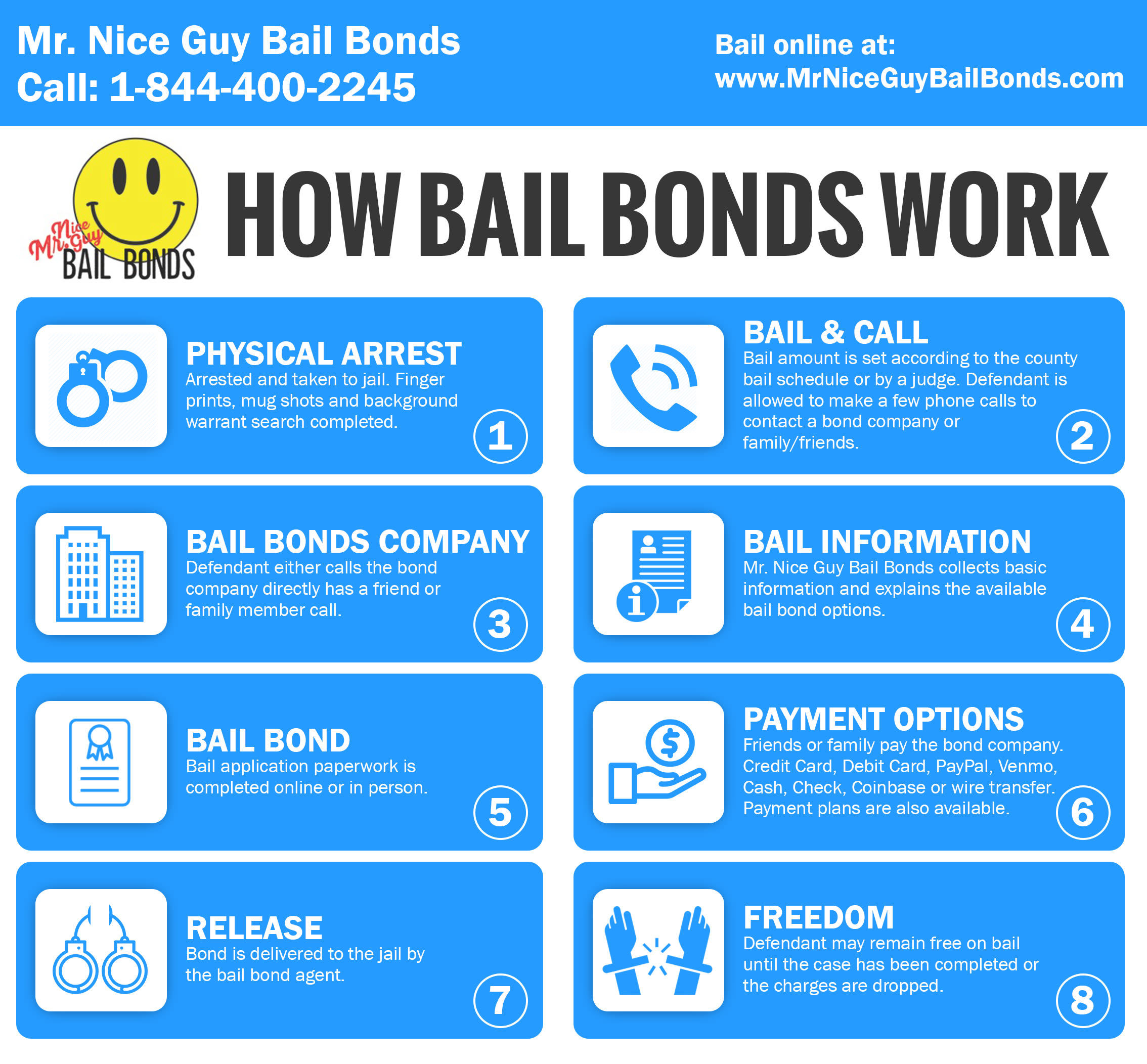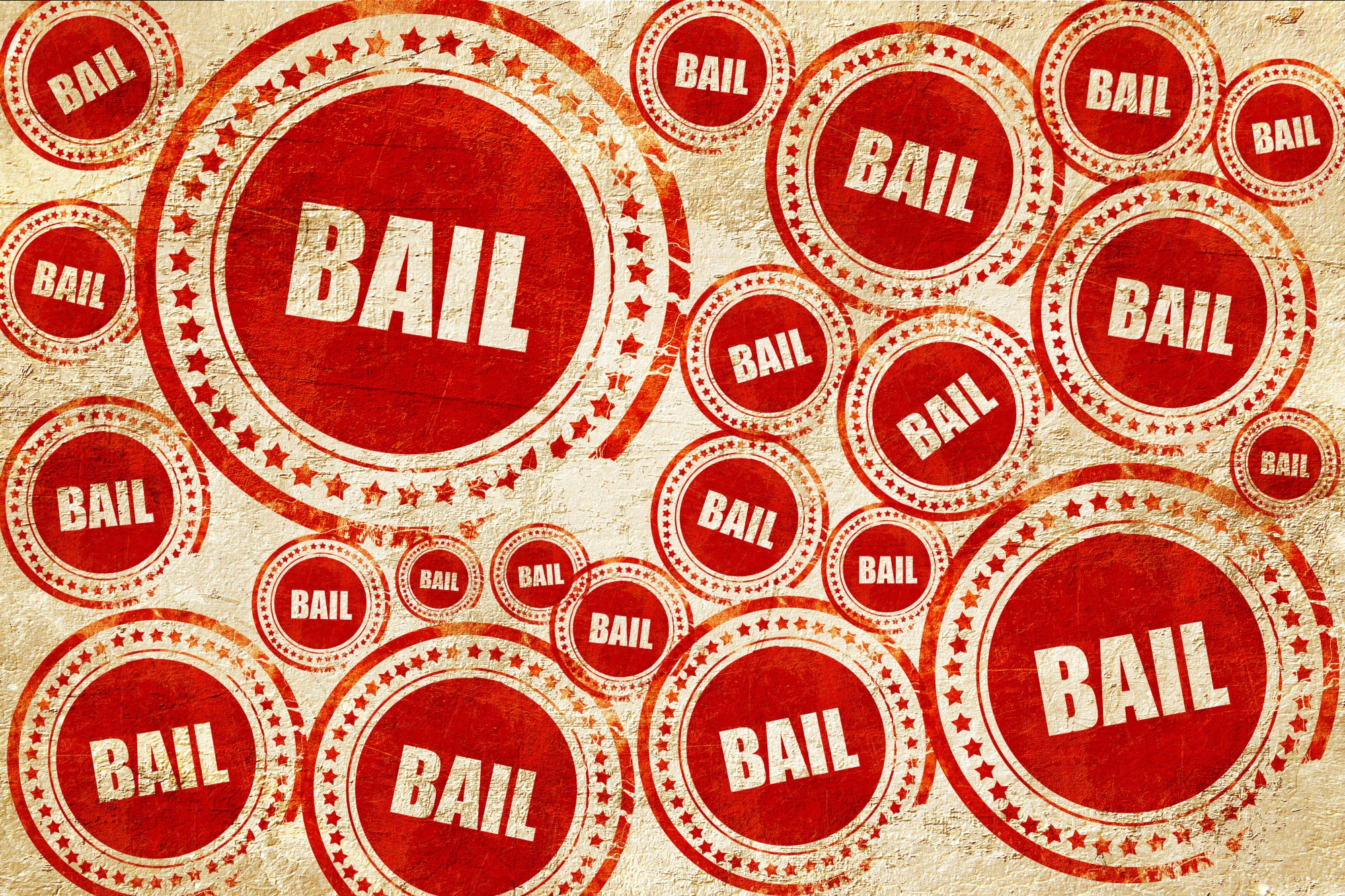Unlocking the Tricks of Bail Bonds: A Detailed Overview
Navigating the complex globe of Bail bonds can frequently really feel like understanding a cryptic code, with layers of intricacy that stay hidden to several. From the different sorts of Bail bonds readily available to the pivotal duty of a co-signer, each element plays an essential part in this lawful procedure. As we untangle the web of intricacies surrounding Bail bonds, a more clear understanding arises, clarifying the mechanisms that underpin this system. Join us as we delve much deeper into the nuanced aspects of Bail bonds, uncovering the keys that lie within and debunking this typically opaque world.
Recognizing Bail Bonds Process
When facing a legal scenario that calls for uploading Bail, recognizing the Bail bonds process is vital to browse the intricacies of the judicial system effectively. Bail bonds function as a financial assurance to the court that the accused will certainly stand for all needed court appearances. This procedure includes a bail bondsman, who commonly bills a non-refundable fee, usually around 10% of the overall Bail quantity, to publish the Bail in support of the defendant.

Moreover, collateral, such as residential property or properties, may be needed to protect the bail bond. Understanding the terms and problems of the bail bond contract is vital to make sure compliance and avoid any type of additional lawful consequences. By understanding the Bail bonds process, individuals can make educated decisions when navigating the lawful system.
Types of Bail Bonds Available
Numerous sorts of Bail bonds are offered to individuals encountering legal proceedings, providing choices customized to certain circumstances and requirements. One of the most usual type is a surety bond, where a bond bondsman pays the complete Bail amount in behalf of the accused for a non-refundable fee, generally around 10% of the overall Bail. Money bonds need the complete Bail total up to be paid in money before the defendant can be released. Home bonds, on the various other hand, include using useful properties like realty as collateral for the Bail amount.
Additionally, there are government Bail bonds for situations including government charges and migration bonds for people apprehended by Migration and Customs Enforcement (ICE) Recognizance, or trademark bonds, are approved based on the accused's assurance to show up in court without requiring any type of settlement. Lastly, transfer bonds are made use of when a defendant is detained in a different state and requires to upload Bail to be released. Understanding the various kinds of Bail bonds readily available can help offenders navigate the lawful procedure much more properly.
Obligations of the Co-Signer

Furthermore, as a co-signer, you are answerable for guaranteeing that the accused follows any type of problems established by the court, such as attending therapy or avoiding particular tasks. It is very important to keep open interaction with the offender to monitor their conformity and attend to any type of issues immediately. Ultimately, being a co-signer involves a significant level of trust bail hearing and obligation, as you are economically and legitimately linked to the offender's Bail obligations.
Consequences of Skipping Bail

Skipping Bail can have major lawful effects for both the defendant and the co-signer involved in the bail bond agreement. When an accused fails to show up in court as required after publishing Bail, the court commonly provides a warrant for their arrest. This not only worsens the offender's lawful concerns but also places the co-signer in danger.
For the offender, avoiding Bail can cause added criminal costs, such as contempt of court or Bail leaping, which can lead to fines, a cancellation of Bail benefits, and even jail time. Additionally, the offender might lose the Bail amount paid and any type of collateral given.
If the defendant avoids Bail,Co-signers also deal with substantial repercussions. As the co-signer assures the offender's appearance in court and is monetarily liable for the full Bail quantity, they might be called for to pay the entire Bail if the accused absconds. This can bring about financial stress, harmed debt, and prospective lawsuit against the co-signer.
Trick Consider Bail Bond Approval
Much more serious offenses might lead to higher Bail amounts or also a denial of Bail altogether. A history of previous convictions or a pattern of missing court days can elevate red flags and make it more difficult to secure a bail bond.
Additionally, the ties the accused has to the area can check affect the approval of a bail bond. The capability to pay the Bail amount or give security click over here can increase the opportunities of bail bond approval. Inevitably, a combination of these variables is considered by the court when identifying whether to approve a bail bond.
Verdict
In verdict, recognizing the Bail bonds process, the types available, the duties of the co-signer, the effects of avoiding Bail, and the essential consider bail bond approval are vital for navigating the legal system. By acquainting oneself with these elements, people can make educated decisions and make sure a smoother process when taking care of Bail bonds. It is necessary to follow the requirements and standards established forth to prevent any potential difficulties.
The most common type is a guaranty bond, where a bail bondsman pays the complete Bail amount on behalf of the accused in exchange for a non-refundable cost, typically around 10% of the total Bail. By authorizing the bail bond contract, you are taking on the obligation of assuring the full Bail quantity if the offender fails to show up in court - bail dayton ohio.Skipping Bail can have severe lawful consequences for both the co-signer and the offender entailed in the bail bond agreement. The capacity to pay the Bail amount or provide security can increase the possibilities of bail bond authorization.In verdict, recognizing the Bail bonds process, the types available, the obligations of the co-signer, the effects of avoiding Bail, and the essential aspects in bail bond authorization are vital for navigating the lawful system